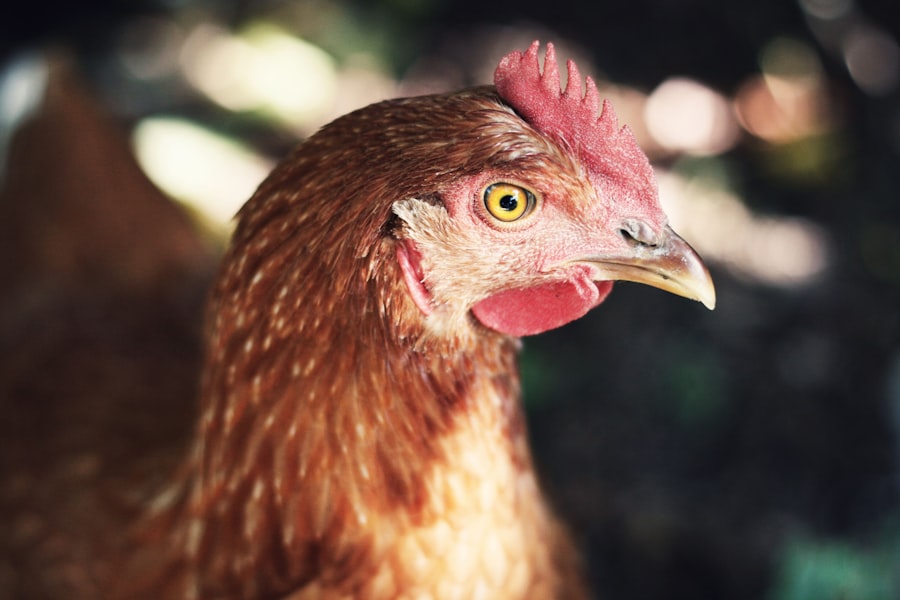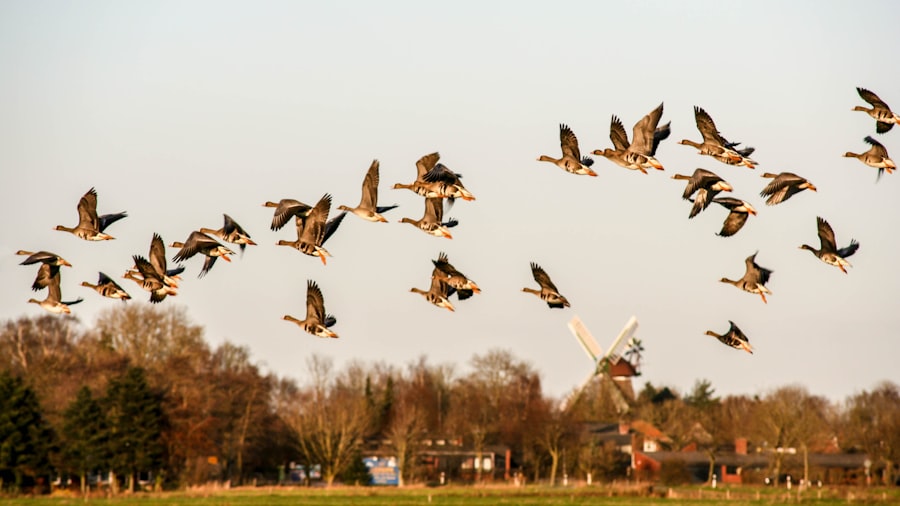Keeping turkeys, chickens, and quail together can be a rewarding experience for poultry enthusiasts. Each of these birds has its own unique characteristics and requirements, but with proper planning and management, they can coexist harmoniously in the same environment. Turkeys are known for their large size and impressive plumage, while chickens come in a variety of breeds and colors, and quail are small, ground-dwelling birds.
By understanding the specific needs of each species and providing appropriate housing, nutrition, and care, it is possible to create a diverse and thriving poultry community. When considering keeping turkeys, chickens, and quail together, it is important to understand the individual behaviors and social dynamics of each species. Turkeys are known for their curious and sometimes aggressive nature, while chickens have a pecking order within their flock.
Quail, on the other hand, are generally more docile and prefer to stay close to the ground. By taking these factors into account and providing adequate space and resources, it is possible to create a balanced and harmonious environment for all three species to thrive.
Table of Contents
- 1 Considerations for Housing and Space
- 2 Feeding and Nutrition Requirements
- 3 Behavioral Interactions and Compatibility
- 4 Health and Disease Management
- 5 Breeding and Reproduction Considerations
- 6 Conclusion and Final Thoughts
- 7 FAQs
- 7.1 Can you keep turkeys, chickens, and quail together?
- 7.2 What are the considerations for keeping turkeys, chickens, and quail together?
- 7.3 What are the potential challenges of keeping turkeys, chickens, and quail together?
- 7.4 How can you minimize potential issues when keeping turkeys, chickens, and quail together?
- 7.5 Are there any benefits to keeping turkeys, chickens, and quail together?
Key Takeaways
- Keeping turkeys, chickens, and quail together can be a rewarding experience, but it requires careful planning and consideration of their unique needs and behaviors.
- When housing these birds together, it’s important to provide enough space to accommodate their different space and roosting requirements, as well as to prevent overcrowding and aggression.
- Each bird species has specific nutritional requirements, so it’s important to provide a balanced diet that meets the needs of all three species.
- Understanding the behavioral interactions and compatibility between turkeys, chickens, and quail is crucial to prevent aggression and ensure a harmonious coexistence.
- Proper health and disease management, as well as careful consideration of breeding and reproduction, are essential for maintaining the well-being of turkeys, chickens, and quail in a mixed flock.
Considerations for Housing and Space
Space Requirements for Each Species
Turkeys require the most space due to their large size and active nature. A general rule of thumb is to provide at least 10 square feet of space per turkey to prevent overcrowding and reduce the risk of aggression. Chickens also need ample space to roam and establish their pecking order, so providing at least 4 square feet per bird is recommended. Quail are smaller and can thrive in smaller spaces, but it is still important to provide at least 1 square foot per bird to ensure they have enough room to move around and exhibit natural behaviors.
Roosting and Nesting Areas
In addition to space considerations, it is important to provide separate areas for each species to roost and nest. Turkeys prefer to roost off the ground on elevated perches, while chickens typically roost in elevated areas within their coop. Quail prefer to nest on the ground, so providing low nesting boxes or sheltered areas will accommodate their natural behaviors.
Reducing Competition and Aggression
By providing separate areas for each species to roost and nest, it reduces the risk of competition and aggression between the different birds. This is essential for maintaining a harmonious and healthy multi-species flock.
Feeding and Nutrition Requirements

Feeding turkeys, chickens, and quail together requires careful consideration of each species’ nutritional needs. Turkeys have specific dietary requirements due to their rapid growth and large size. A high-quality turkey feed that is formulated to meet their protein and nutrient needs is essential for their health and development.
Chickens also have specific dietary requirements based on their age and purpose (e.g., laying hens versus meat birds). Providing a balanced chicken feed that meets their protein and nutrient needs will support their overall health and egg production. Quail have their own unique dietary needs, requiring a high-protein game bird feed to support their growth and egg production.
It is important to provide separate feeding areas for each species to prevent competition and ensure that all birds have access to the appropriate feed. Additionally, providing access to grit and oyster shell for chickens and quail will support their digestive health and eggshell formation. By understanding the specific nutritional needs of turkeys, chickens, and quail, it is possible to provide a balanced diet that supports their overall health and well-being.
Behavioral Interactions and Compatibility
Understanding the behavioral interactions and compatibility between turkeys, chickens, and quail is essential for creating a harmonious poultry community. Turkeys are known for their curious and sometimes aggressive nature, especially during the breeding season. They may display dominance behaviors towards other birds, so it is important to provide enough space and resources to reduce the risk of aggression.
Chickens have a well-established pecking order within their flock, which can lead to bullying and aggression if not managed properly. Providing enough space, perches, and enrichment can help reduce aggression within the chicken flock. Quail are generally more docile and prefer to stay close to the ground, making them less likely to engage in aggressive behaviors towards other birds.
By understanding the behavioral dynamics of turkeys, chickens, and quail, it is possible to create a balanced environment that supports the natural behaviors of each species. Providing enough space, resources, and enrichment will help reduce the risk of aggression and promote positive interactions between the different birds.
Health and Disease Management
Maintaining the health of turkeys, chickens, and quail requires proactive disease management and biosecurity measures. Each species is susceptible to different diseases and parasites, so it is important to implement a comprehensive health management plan that includes regular monitoring, vaccination, and parasite control. Turkeys are susceptible to diseases such as blackhead, coccidiosis, and respiratory infections, so implementing biosecurity measures and providing a clean living environment is essential for preventing disease outbreaks.
Chickens are susceptible to diseases such as Marek’s disease, infectious bronchitis, and parasites such as mites and lice. Regular health checks, vaccination, and parasite control will help maintain the overall health of the chicken flock. Quail are susceptible to diseases such as coccidiosis, as well as parasites such as mites and lice.
Implementing biosecurity measures and providing a clean living environment will help prevent disease outbreaks in the quail flock. In addition to disease management, it is important to provide a clean living environment with good ventilation, access to clean water, and regular cleaning of feeding areas. By implementing proactive health management practices and biosecurity measures, it is possible to maintain the overall health of turkeys, chickens, and quail.
Breeding and Reproduction Considerations

Understanding Species-Specific Breeding Behaviors
Breeding turkeys, chickens, and quail together requires careful planning and management to ensure successful reproduction and healthy offspring. Each species has its unique breeding behaviors and requirements. Turkeys, for instance, need separate breeding pens for mating pairs and proper incubation conditions for hatching eggs. Chickens also have specific breeding behaviors, including establishing mating pairs within the flock and providing appropriate nesting areas for egg laying.
Creating a Successful Breeding Program
By understanding the specific breeding behaviors of turkeys, chickens, and quail, it is possible to create a breeding program that supports successful reproduction and healthy offspring. Providing separate breeding pens or areas for each species will help reduce competition and aggression during the breeding season. This approach allows each species to thrive and reproduce successfully.
Optimizing Nesting Areas and Incubation Conditions
Additionally, providing appropriate nesting areas and incubation conditions will support successful hatching and rearing of offspring. By catering to the specific needs of each species, breeders can increase the chances of successful reproduction and raise healthy, thriving birds.
Conclusion and Final Thoughts
In conclusion, keeping turkeys, chickens, and quail together can be a rewarding experience for poultry enthusiasts when proper planning and management are implemented. Understanding the individual behaviors, housing needs, nutritional requirements, behavioral interactions, health management practices, and breeding considerations of each species is essential for creating a harmonious poultry community. By providing enough space, resources, enrichment, and proactive health management practices, it is possible to create an environment that supports the natural behaviors and overall well-being of turkeys, chickens, and quail.
Ultimately, keeping these three species together requires careful consideration of their individual needs while also promoting positive interactions between them. With proper planning and management, it is possible to create a diverse and thriving poultry community that provides both enjoyment for poultry enthusiasts as well as healthy living conditions for the birds themselves.
If you’re considering keeping turkeys, chickens, and quail together, it’s important to understand the specific needs of each species. According to a helpful article on Poultry Wizard, “How Many Chickens Do You Need for a Family of 4?” provides valuable insights into the number of chickens required to meet the egg and meat needs of a typical family. Understanding the space requirements for each species is also crucial, as discussed in the article “Floor of Chicken Coop.” Additionally, the article “Chicken Coop Grand Island, NE” offers practical tips for creating a suitable living environment for all three types of poultry. It’s essential to do thorough research and consider the advice of experienced poultry keepers before attempting to house turkeys, chickens, and quail together. (source)
FAQs
Can you keep turkeys, chickens, and quail together?
Yes, it is possible to keep turkeys, chickens, and quail together in the same coop or living space.
What are the considerations for keeping turkeys, chickens, and quail together?
When keeping these birds together, it is important to consider their different space and dietary needs. Turkeys require more space and different feed compared to chickens and quail.
What are the potential challenges of keeping turkeys, chickens, and quail together?
One potential challenge is the risk of disease transmission between the different bird species. Additionally, turkeys may be more aggressive towards chickens and quail, especially during mating season.
How can you minimize potential issues when keeping turkeys, chickens, and quail together?
To minimize potential issues, provide ample space for each species, separate feeding areas, and monitor the birds for any signs of aggression or illness.
Are there any benefits to keeping turkeys, chickens, and quail together?
Keeping these birds together can provide a diverse and interesting flock, and they may also help to keep each other company and reduce boredom. Additionally, they can help to control pests in the area.
Meet Walter, the feathered-friend fanatic of Florida! Nestled in the sunshine state, Walter struts through life with his feathered companions, clucking his way to happiness. With a coop that’s fancier than a five-star hotel, he’s the Don Juan of the chicken world. When he’s not teaching his hens to do the cha-cha, you’ll find him in a heated debate with his prized rooster, Sir Clucks-a-Lot. Walter’s poultry passion is no yolk; he’s the sunny-side-up guy you never knew you needed in your flock of friends!







